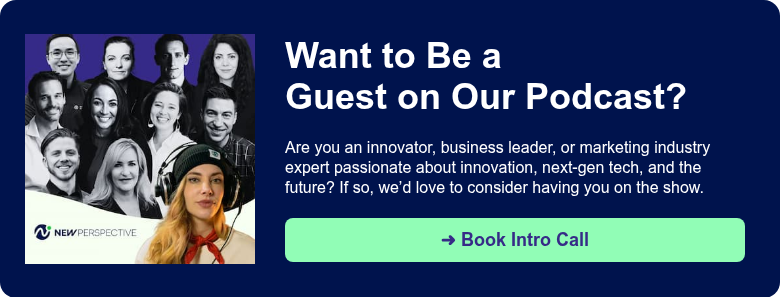Starting a Business Podcast: What You Need to Know

Podcasts are blowing up right now. An estimated 100 million people in the US alone tune into a podcast every month, whether for entertainment or business. 65% of marketers are planning to increase their podcast advertising spending this year, and 8 out of 10 people who listen to podcasts remember the ads they hear. For businesses looking to expand their message, it’s a great medium — and well worth the effort.
5 Reasons you should start your business podcast
1. They’re versatile
Podcasts can take different formats and serve different purposes, from interviews to education to storytelling. They can be as long or short as you need — the right length depends on your objectives.
2. They can reach a wide audience
Podcasts can be distributed across a wide range of platforms all over the world — they’re accessible to virtually anyone anywhere. Use them to attract new clients and expand your audience.
3. They build trust
Podcasts are a great way to package and share your knowledge and insights, making them a great tool for establishing trust and credibility in the industry. They’re highly effective when it comes to presenting thought leadership and reliable expertise.
4. They create a sense of personal connection
As conversations, podcasts are more personal and engaging. This can help you build a stronger relationship with your prospects and customers, improving customer retention and loyalty.
5. They’re a great source for more content
Podcasts are a wellspring of material you can reuse in countless ways. Edit the transcript into a blog or a Q&A. Create snippets for your social media channels. Add the podcast to your expanding bank of interviews with industry colleagues and experts.
How to get started: Steps to launch your business podcast
To create a professional-sounding podcast from your home or office, you just need the basics: a microphone, headphones, recording software / device, and a website host.. There are many free or low-cost editing tools out there as well, and online resources and communities that offer great tips on podcasting. Some examples:
- Recording software could be anything from Zoom to Ringr, or Zencastr.
- Hosting website: We recommend Anchor — it’s free, easy to use, and distributes your content to other streaming platforms like Google Podcast, Apple Podcast, and Spotify.
If you want to offer the kind of highly polished podcasts that tend to garner high engagement rates, you may want to consider hiring a professional production team. They can handle everything from recording and editing to distribution and promotion, leaving you free to focus on creating great content for your podcast.
Either way, here’s what you need to know to get started:
1. Set the goal
Know what you want to achieve with your podcast. Are you looking to get more sales leads, establish yourself as an industry thought leader, or share an important message about your brand? In terms of engagement, just know you’ll need to grow it over time. Podcasts are terrific for that slow burn effect: over time, you can become a go-to for a growing audience.
2. Decide on a format
Podcasts can be tightly scripted, divided into mini-chapters, or ad-hoc and spontaneous. They could cover a series of unrelated topics or center on a theme each season. Go for the format or mix that’s going to serve your needs. Consider interviews, a deep-dive that educates and enlightens, or a wrap-up of news. One great example of an educational podcast: AquiPor’s podcast, Water Voice which is just what it sounds like: it’s a podcast about water that features sustainability and infrastructure experts. For a news roundup, see NPR's Up First — you may want to imitate this winning format.
3. Align around a gameplan
Once you've decided on a format — or a mix — consider how you’re going to make these podcasts happen. Organize a team. Consider if you want to go solo or have a cohost, weigh the benefits of having guests (more variety, more perspectives, more cross-pollination). Create a content plan if you don’t already have one and dovetail podcasts into it. Do you want to relate the podcasts to a theme in other forms of content? Do you want to align around a marketing goal or campaign?
4. Create a cadence
If you're wondering how often to release your podcast episodes, we suggest putting out a new episode twice per week, so your listeners can get used to tuning in regularly.
But since everyone's schedule is different, here are the most common cadences:
- 7% of podcasters release a podcast episode every 1-2 days
- 36% release an episode every 3-7 days
- 39% release an episode every 8-14 days.
- 17% of podcasters release an episode every 15-29 days.
- 1% release an episode once a month or even less frequently.
5. Name and package the podcast
Pick a relatable name for your podcast that makes it clear what you’re about. (Clever is great, but not too clever than it’s not apparent what you’re focusing on.) Use relevant keywords in the name and make sure it aligns with your brand, is easy to remember, and clearly defines the show's purpose. Make sure your name hasn’t already been used, as well. Check Apple/Google podcasts for similar names, and use Voxalyze or Podstatus to analyze your competitors.
6. Design a logo and make a webpage
Graphic elements matter: a well-designed logo can help attract listeners and guests; a web page, or landing page, is critical for details on the show and your brand’s mission. Here’s ours for inspiration.
7. Build a guest list
Who is your ideal guest on the podcast? We find that organizations may not be sure on who to invite — or why. Think outside the box — go for someone you admire, a colleague, a leader, someone from your own company. What we don’t suggest: just having a series of close industry friends for an “informal conversation.” What we do: schedule a few high-profile guests and aim high. Once you have one or two folks from the targeted industry on board, others will be more likely to say yes. Social proof is everything.
When you reach out with invitations, use LinkedIn or an email. Provide plenty of fodder to help someone make a decision. Send them the podcast landing page so they can easily learn about your brand and the podcast’s concept. Share your social media presence or blogs as well to show the depth of your thought leadership and coverage.
One timesaver: create an automated email outreach sequence in HubSpot.
8. Promote your podcast!
Promotion is a given: you want people to actually hear the podcast you’ve worked so hard to create. Our pointers:
- Ask people to subscribe. A growing subscriber list is a highly effective way to boost your podcast's visibility. Also, when you release a new episode, your subscribers will be notified and can listen right away.
- Make a digital campaign. Invest in a visually striking campaign and promote your podcast via Instagram, TikTok, LinkedIn, and Facebook.
Consider a podcasting partnership
Your podcast will be a powerful tool for showcasing your expertise, building your brand, and engaging with your prospective audience. To keep it fresh, keep the ideas flowing. We’ve seen the act of making a podcast galvanize an organization to truly dig into its own purpose and values, find new and engaging ways to offer wisdom and a point of view, and find its voice.
If you’re looking for more guidance on ensuring your podcast has the most impact and makes a splash, reach out. A partner may be just what you need to take it to the next level. We’d love to discuss ways to help showcase your company and ensure your voice joins the conversation.
Check out our podcast on sustainability and innovation, called Green New Perspective
Green New Perspective is a sustainability podcast on a mission to increase awareness and foster collaboration in the cleantech/sustainability space. We provide a platform for innovators to showcase their solutions, share insights about their growth journey, and gain strategies for successful marketing and growth.
Join us in making a sustainable future a reality. ⚡




